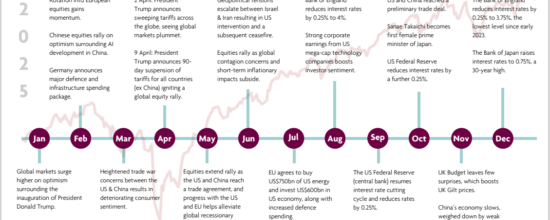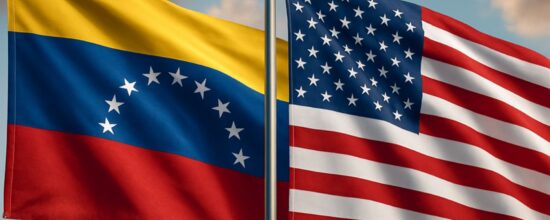Market Update: Fed hikes interest rates to highest in 22 years
To download the PDF click here.
The US economy remains robust despite eleven rate rises since March 2022.
US equity performance was mixed after the US Federal Reserve (Fed) raised interest rates by a quarter percentage point in its battle to stabilise prices. The decision took the Fed’s benchmark rate to a range of 5.25% to 5.5%, which is the highest in 22 years. It is the eleventh increase since the Fed starting raising rates in March 2022 and comes just one month after it hit pause to assess the state of the economy.
US inflation continues to ease, with the consumer price index increasing 3.0% annually in June, down from 4.0% in May. It is the lowest level in more than two years and represents a steep drop from 9.1% last June. However core inflation – which strips out volatile food and energy costs – remains high at 4.8%, down from 5.3% in May.
The US jobs market remains robust despite the Fed’s attempts to slow the economy and bring down inflation. The US added 209,000 new jobs in June as hiring slowed amid signs the economy is cooling. This compares to the 309,000 jobs added in the previous month. The unemployment rate ticked down from 3.7% in May to 3.6% in June.
UK inflation falls
UK government bond prices surged after inflation fell to its lowest level in 16 months. Gilt prices rise when investors expect interest rates to stop rising – and with inflation falling, investors expect the Bank of England to soon stop hiking rates. UK inflation fell by more than expected in June to 7.9%, down from 8.7% in May, easing pressure on the Bank of England to continue its aggressive rate rises. Core inflation also fell to 6.9% from a 31-year high of 7.1% the previous month.
UK house prices fell at their fastest annual pace in 12 years in June as rising mortgage costs put further pressure on homeowners. Property prices fell 2.6% in the year to June, the biggest drop since June 2011, according to the Halifax price index.
Wages increased at a faster rate than expected in May, fuelling fears inflation could stay higher for longer. Earnings growth hit 7.3% in the period from February to May compared to a year earlier. This was driven by the strongest rise in private sector pay growth since the pandemic, where wage growth was at 7.7%.
ECB hikes rates
The European Central Bank (ECB) lifted its key interest rate by 0.25 percentage points to a record high of 3.75%. Eurozone inflation fell from 6.1% in May to 5.5% in June, its lowest rate since the start of last year. But in a setback for the ECB, core inflation rose from 5.3% in May to 5.4% in June. Business growth has stalled recently as the manufacturing recession has deepened, leaving the ECB in a bind as it presses ahead in its fight against inflation. In another blow to Germany’s economy, the influential Ifo Institute for Economic Research said business sector confidence fell for a second month in a row in June.
Chinese leaders promise to boost recovery
Chinese stocks rose after Beijing promised money to boost its economic recovery, which has been losing steam. Authorities have announced a series of pledges aimed at reassuring private and foreign investors, following lacklustre growth after pandemic restrictions were lifted. The Chinese recovery continues to struggle, with exports contracting in June at their fastest pace since the start of the Covid-19 pandemic. Retail sales are also falling and property sales have slumped. Meanwhile, the unemployment rate among young people is rising.



